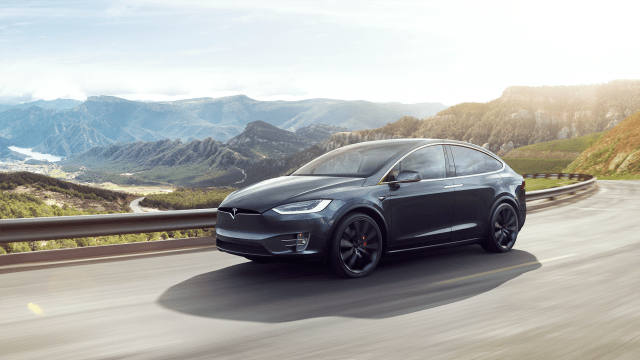Internal quality checks at Tesla have “routinely revealed” defects in more than 90 per cent of Model S and X vehicles after they come off the production line, according to a new report from Reuters. Tesla countered by saying any reworking of cars post-assembly shows that it’s committed to quality.
[referenced url=”https://gizmodo.com.au/2017/11/all-the-questions-tesla-has-to-answer-now/” thumb=”https://i.kinja-img.com/gawker-media/image/upload/t_ku-large/jh5zsg1npvhdyxvv1kgm.jpg” title=”All The Questions Tesla Has To Answer Now” excerpt=”Tesla introduced a new show-stopper last week in the form of a colossal big-rig electric semi. It’s carrying hugely impressive specs, too. But what Tesla CEO Elon Musk offered up was nothing short of a high-flying reveal party for a couple of concepts. Here’s why.”]
Reuters spoke with nine current and former employees — including some who were recently fired as part of a mass dismissal of workers – who all spoke on the condition of anonymity due to non-disclosure agreements they signed.
What they described was a production process that ultimately required numerous fixes before the cars could be shipped.
Here’s more from the story:
The luxury cars regularly require fixes before they can leave the factory, according to the workers. Quality checks have routinely revealed defects in more than 90 per cent of Model S and Model X vehicles inspected after assembly, these individuals said, citing figures from Tesla’s internal tracking system as recently as October. Some of these people told Reuters of seeing problems as far back as 2012.
Tesla’s no stranger to quality issues, but the company said it has continued to improve upon the reliability of the Model S and X over the last couple of years. The automaker didn’t respond directly to the internal figures cited by Reuters, but it portrayed its quality control process as rigorous, with the intention of scouring the vehicle for “even the smallest refinement.”
Model S or Model X cars go through “hundreds” of inspection and test points on the assembly line, Tesla said, and toward the end, they’re subjected to an additional 500 inspections and tests. That means the 90 per cent figure is likely as high as it is because of small issues that, according to Tesla, are virtually inconsequential and swiftly resolved.
“Most customers would never notice the work that is done post-production, but we care about even a fraction of a millimetre body gap difference or a slight paint gloss texture,” a Tesla spokesperson said in a statement to Jalopnik. “We then feed these improvements back to production in a pursuit of perfection.”
The spokesperson went on:
This is reflected in the overall efficiency of the factory, which has improved dramatically. The number of labour hours needed to complete a vehicle has decreased 33% since early 2016. Of the 250,000 Tesla vehicles ever produced, more than half were built in the past 18 months. Whereas before, it took three shifts with considerable overtime to produce our target annual production of 100,000 Model S and X vehicles, now it can be done with only two shifts and minimal overtime.
Tesla earns high marks from its rabid fanbase, but the company has sky-high expectations with the Model 3. If it’s going to expand into the mass-market, it’s going to need everyday, average car buyers – those uninterested in dealing with quality issues.
Some fixes are easily solvable on the floor, workers told Reuters, but they contended that chronic defects in Tesla’s more expensive models show it’s struggling to grasp the basics of auto manufacturing.
Known as “kickbacks” within Tesla, these vehicles have glitches as minor as dents and scratches to more complex troubles such as malfunctioning seats. Easy fixes are made swiftly on the factory floor, workers said.
Trickier cases head to one of Tesla’s outdoor parking lots to await repair. The backlog in one of those two lots, dubbed the “yard,” has exceeded 2,000 vehicles at times, workers told Reuters.
Tesla denied that any such “yards” exist, saying that some of the final tests for the car simply can’t be conducted while the vehicles are on the assembly line. The majority of the issues are minor, Tesla said, resolved in a few minutes, and vehicles aren’t delivered to a customer unless they pass the hundreds of inspections and tests.
The company has shipped cars without parts like seats or computer displays in the past. But Tesla said it’s part of an effort to “constantly” improve software and hardware, which means it will occasionally send certified parts to meet a car at the delivery center if they have been upgraded “after the car has shipped.”
All told, quality’s a big concern for the company as it races to ramp up production of its all-electric Model 3 sedan. Tesla recently announced a production delay for the Model 3, which starts at $US35,000 ($45,986), a bumpy launch for the car. At the same time, it’s planning production in the coming years for a new semi truck (2019) and a new Roadster (2020).
Which is to say Tesla has a lot on its plate right now.
